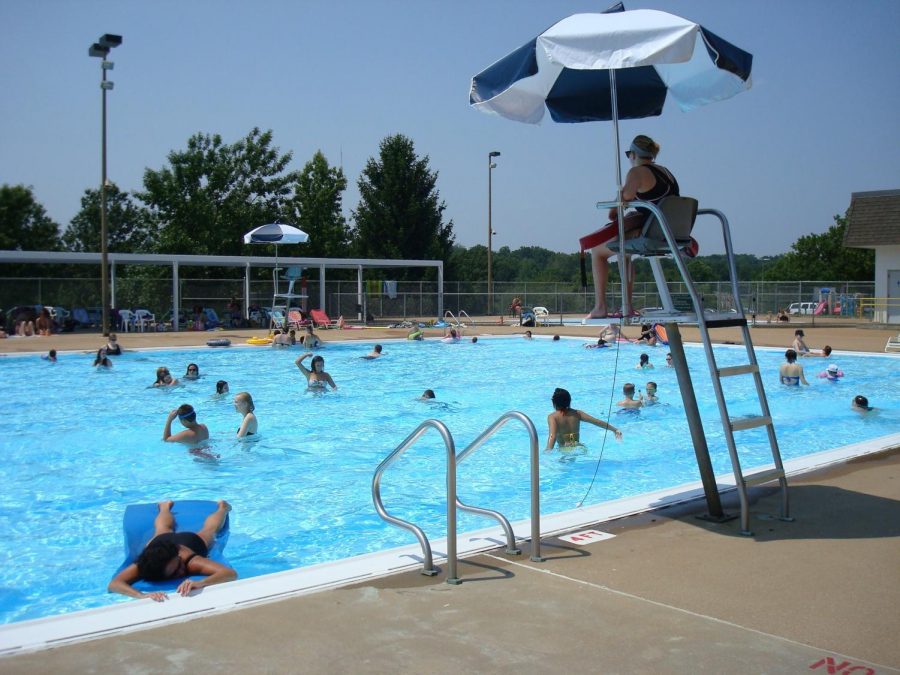Some Mehlville Board of Education members are questioning whether a 1-percent raise for district classified staff is the best use of surplus funds from last year’s budget.
The board’s four newest members last week voted to table a decision on the pay increase so the topic could be part of a larger discussion on budget priorities at the board’s annual retreat on Saturday, Aug. 13.
Voting in favor of postponing the issue were board Secretary Elaine Powers; board members Rich Franz and Mark Stoner and new board member Ron Fedorchak, who was sworn in at the July 28 meeting.
Opposed were board President Venki Palamand, Vice President Larry Felton and board member Tom Diehl.
District officials are recommending that hourly classified staff receive a 1-percent increase to their current salary step for the 2011-2012 school year based on a surplus in the budget for fiscal 2011, which ended June 30.
The increase would cost the district $120,000 plus $15,000 in payroll taxes, according to Chief Financial Officer Noel Knobloch. Mehlville teachers already are projected to receive a roughly 1.5-percent increase to their pay step because of the surplus, Knobloch said.
Higher-than-projected district balances at the end of fiscal 2011 triggered a revenue sharing provision in a memorandum of understanding between the board and the Mehlville National Education Association.
The MOU states that if end-of-year district balances surpass projections by $500,000 or more, half of the excess funds will be put toward teachers’ salaries.
Officials believe it’s only fair, then, to grant classified personnel a similar pay increase, Knobloch told the board last week.
Both classified and certified employees will remain on their current salary step, but the amount of that step will increase.
None of the pay increases on the table are for administrators, Knobloch said.
Teachers and classified staff normally move up a step on their salary schedule based on the number of years worked and satisfactory job performance, respectively.
All staff were frozen on their salary step in 2008-2009, but both certified and classified employees have received step increases the last two years, Knobloch said.
Mehlville’s 2011-2012 budget was prepared with certified and classified personnel salary steps frozen at 2010-2011 levels. However, the district in June realized an unexpected $775,000 in state revenues coupled with $1.4 million in cost savings, resulting in a roughly $2.3 million surplus in the 2010-2011 budget.
Knobloch told the board there is enough “cushion” in the 2011-2012 budget to absorb the certified and classified pay hikes.
The fiscal 2012 budget, as approved by the board in June, projects a $55,000 deficit and an operating reserve of more than 16 percent of expenditures next June 30.
“This will not cause us to go deeper in deficit,” Knobloch said of the pay increases.
But Stoner contended that the pay increase wouldn’t be a one-time expense.
“This is a multiyear decision, and so over five years you’re talking $600,000,” he said. “… It just seems to me that as a board member … the message I don’t want to send to taxpayers is that every time we have a little surplus, we’re going to give this out in terms of a raise.
“I think we need to think of the best way — and I don’t think that we’ve evaluated this as a board — the best to spend this money. We just simply have not had a lot of time to discuss this.”
Powers asked Knobloch if tying certified raises to classified pay increases was the “precedent.”
“… Yes, it has been the practice to not treat one group of employees differently,” he said, adding that the board was not legally required to increase classified salaries. “… It’s kind of a gentleman’s agreement, an understanding, keeping working conditions and morale at a respectable level.”
Powers said later, “It does raise the question though of whether this is the best use of additional dollars … I understand wanting to make things equitable, I understand employee morale. I agree with what Mark said, though, in terms of wanting to have some additional discussion as to whether this is the best — maybe we decide this is the best way. But I think that we should be more involved perhaps in some of these discussions about what are we going to do with these additional dollars instead of just assuming that we’re going to match up with teachers.”
But Diehl said morale and fairness are “key issues.”
“These are basically some of our lowest paid employees, and if we’re going to pinch pennies on them then we’re sending really a rather negative message,” he said. “We have a $100 million operation. We’re looking at one-tenth of 1 percent as far as what this would cost … It’s really not going to make a lot of difference in the way the district operates. It’s not going to make a lot of difference as far as what happens in the classroom. But it’ll make a lot of difference in the lives of the people who drive our kids to school and track their health as far as our nurses, our secretaries, our custodial people …”
Felton said, “I don’t think anybody here thinks that we don’t take a good hard look at spending, but I don’t think that as a group we’ve sat down and gone through that exercise. I think this is a great opportunity for the retreat, because I think this is something we ought to talk about: What is our philosophy toward spending? But I don’t think you manage spending one thing at a time. I think that leads to chaos. I think it’s micro-managing …”
Franz also wanted more time to discuss the proposal, noting he first learned details about it “in the local news media, which I’m not real happy about.”
“No one is saying that at some point we wouldn’t all agree, or we wouldn’t as a majority vote in favor of a pay raise,” Franz said at one point. “But to Elaine and Mark’s point, I think it certainly deserves more discussion.”
Franz added later that district voters “have in my opinion sent a very clear message in the last 12 months to this board that they expect fiscal responsibility and fiscal conservatism,” he contended. “And I don’t think that this pay raise achieves that goal.”








